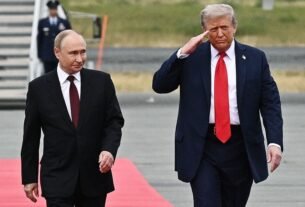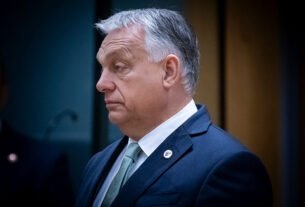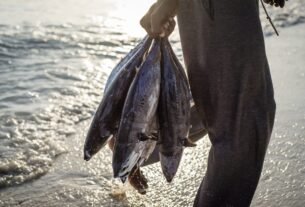Good Tuesday morning and welcome to The Capitals.
I’m Eddy Wax, here with Nicoletta Ionta and the rest of Euractiv’s newsroom.
Got a tip, rumour, or story idea? Drop me a line by email – or, for the more discreet, via Signal: @EddyWax.94
Today’s edition is powered by European Hydrogen Week
Shaping a competitive net-zero future at the European Hydrogen Week!
The EU Hydrogen Week 2025 is the place to be for discussions on a net-zero future and the legislation needed to support the hydrogen economy. Join us in Brussels and be part of the latest in climate policy, technology and market trends for hydrogen!
In the capital
Ursula von der Leyen has gotten a blunt reminder that she is not Europe’s commander-in-chief.
Germany’s defence minister, Boris Pistorius, on Monday insisted that the EU had “no competence whatsoever” to station troops in Ukraine and said it was “totally wrong” to talk about it publicly at this stage.
His comments drew a dividing line between Berlin and Brussels just days before a major meeting in Paris, where European leaders who projected unity for Ukraine in Washington last month are meant to flesh out plans to deter Russia after the war. (Even though a ceasefire seems to be getting no closer).
Pistorius’s words were a rebuke of the stump speech von der Leyen gave on her roadshow across EU capitals last weekend – during which she laid out a three-point plan to bolster Ukraine after the end of Russia’s invasion: strengthen Kyiv’s army, deploy a multinational “reassurance,” and the country’s accession to the bloc.
She also teased “pretty precise plans” for a multinational force in an FT interview.
But putting European soldiers in Ukraine is a matter for national governments, and more precisely – as she herself mentioned – the Coalition of the Willing, a loose group of capitals separate from the EU, led by France and Britain.
As my colleague Nick Alipour writes from Berlin, Pistorius’ blunt response shows how fraught the idea of putting boots on the ground remains in Germany, a country with the EU’s third-largest army, after Poland and France, and a society where the post-1945 dread of war still runs deep.
Successive German governments – even under the hawkish Merz – have stressed that talk about deployments should be the very last step. Meanwhile, the far-right Alternative for Germany has seized on the issue in the country’s east, running anti-government scare campaigns about conscription, like this.
Von der Leyen should know these pressures well; she once led Germany’s defence ministry. And yet Brussels appeared taken aback by the ferocity of Berlin’s pushback. “The plans for a Multinational Force Ukraine have been extensively discussed,” said an EU official.
Misleading media coverage suggesting the EU had already agreed to send instructors to train soldiers in Ukraine irritated some in Berlin, providing even more reason to publicly hit the brakes, Nick writes.
The diplomatic dispute will leave Vladimir Putin rubbing his hands in glee. Russia is showing no appetite to end the war, and – according to the Commission – even jammed the GPS of von der Leyen’s plane as she toured frontline states to rally Europe’s defences.
Far from pushing the Russian leader toward negotiations, Europeans are now squabbling over who said what, who has the right to say what, and when to say it.
And their response to the GPS attack? Still not on the radar.
Italy eyes EU defence spending clause
Rome is weighing use of the EU’s “national escape clause” to boost defence spending without breaching the bloc’s strict fiscal rules. Sixteen member states have already sought the exemption, which permits increases in defence spending by up to 1.5% of GDP without being formally reprimanded by the Commission.
The shift would mark a U-turn for PM Giorgia Meloni’s government, which has long resisted the measure – a key pillar of von der Leyen’s €800 billion rearmament plan.
Economy Minister Giancarlo Giorgetti previously warned that such a step could leave Italy stuck in the EU’s “excessive deficit procedure,” complicating efforts to reassure investors about the country’s high debt burden.
Enlargement talks falter
Europe ministers from member states are in Copenhagen today to advance technical work on enlargement, which has stalled since Croatia joined the bloc in 2013. Ukraine and Moldova will dominate the agenda, though both face roadblocks compared with the momentum of 2022, when they launched their bids.
Ukraine’s accession is now firmly blocked by Hungary and has become entangled in future peace talks with Russia. Moldova – heading into a razor-edged election this month amid Russian political interference – remains politically tied to Ukraine’s bid despite some calls to separate the two.
“It would be a tragic mistake not to allow next steps for Moldova because it’s impossible to do the same for Ukraine,” said Steven Van Hecke, an enlargement expert and professor of EU politics at KU Leuven.
Danish officials, known for their pragmatism, are working on Ukraine’s file without Hungary – though accession by only 26 states is a legal fiction. The aim is less about real progress than sustaining candidate morale. The European Parliament in Strasbourg will host Moldova’s president, Maia Sandu, next week.
Trump’s threats harm Danish businesses
The US president’s talk of annexing Greenland – a self-governing territory of Denmark – is unsettling business leaders, who say it’s weighing on their US investment plans.
Jakob Ellemann-Jensen, deputy director of the Danish Chamber of Commerce, told The Capitals that “uncertainty is the strongest tool of the American president and this creates another layer.”
He described the EU-US trade agreement as “horrible” but still the best deal possible. Ellemann-Jensen, a former defence minister and deputy PM under Mette Frederiksen’s government, also said even the arms industry has shed its stigma, with young people increasingly drawn to it in the wake of Russia’s invasion of Ukraine.
Brussels shelves fight over ‘safe’ countries
EU capitals have set aside debate over expanding the bloc’s “safe country of origin” list, deciding to advance the measure without new entries. The list, currently under Council scrutiny before heading to Parliament’s LIBE committee, allows asylum claims – and rejections – to be fast-tracked.
The Commission in April proposed designating seven countries safe for migrants to return to, and some capitals floated further additions before the summer, according to an internal paper seen by Euractiv.
While member states can keep their own national lists, EU-wide recognition provides legal certainty. But the Council presidency warned the bloc’s list cannot be “regarded as an exhaustive, definite list” and reminded capitals that national designations “remain a supplementary tool,” according to the document.
After debate, the bloc agreed not to add new names, with one Council official saying the priority was to clinch the regulation rather than reopen a divisive fight.
EU faces petition on abortion access
The Commission will formally review the European Citizens’ Initiative “My Voice, My Choice,” which calls for the creation of a fund to help women travel for abortion services in member states where the procedure is more accessible.
While the executive has stressed that abortion rights remain under national control, it is obliged to provide an official response by March 2026, detailing any intended actions.
The capitals
PRAGUE
Former Czech PM Andrej Babiš, the opposition leader poised for a comeback, was hospitalised yesterday after being attacked with a stick at a rally in the town of Dobra. Police detained the assailant and called the incident hooliganism while PM Petr Fiala and Interior Minister Vít Rakušan both condemned the attack. It comes a month before parliamentary elections, which Babiš’ ANO party has a decent chance of winning.
BERLIN
German Chancellor Friedrich Merz ruled out raising taxes to cover a €200 billion budget shortfall, narrowing his coalition’s options and drawing warnings from the Social Democrats against relying only on welfare cuts.
MADRID
Salvador Illa, Catalonia’s Socialist president, meets exiled separatist leader Carles Puigdemont in Brussels today to “normalise relations” with Junts, whose seven MPs are key to Pedro Sánchez’s majority. The talks come as this capital prepares an €85 billion regional debt write-off and faces ongoing tensions over the Catalan amnesty law.
LISBON
Pedro Sánchez, Spain’s prime minister, wants this capital and Paris to join him in a climate emergency pact after one million hectares burned across the EU this year. Two thirds of the damage was in Spain and Portugal, in the worst wildfire season since records began in 2006. Sánchez pressed the EU to hold firm on the green transition, blaming climate change, poor land management and weak prevention for the devastation.
BRATISLAVA
Slovakia’s opposition Progressive Slovakia has urged PM Robert Fico to cancel an upcoming trip to China, where he is scheduled to meet Putin for the third time in a year. Party leaders warned the visit would deepen Slovakia’s isolation, noting that Fico has met Putin and Chinese President Xi Jinping twice each but has yet to hold talks with EU leaders.
Also on Euractiv
Brussels took a step toward ending its 15-month political stalemate on Monday, as centrist Yvan Verougstraete of Les Engagés proposed a seven-party coalition that would exclude the Flemish nationalist N-VA.
The plan – which brings together MR, PS and Les Engagés on the French-speaking side with Groen, Open VLD, Vooruit and CD&V on the Dutch-speaking side – comes as the city struggles with €15.5 billion of debt and a downgraded credit rating.
Europe’s industrial belt could become the bloc’s main “carbon valley,” where carbon capture and storage turns emissions into a managed resource.
A study for the eFuel Alliance estimates 130 million tonnes of industrial CO₂ will persist in 2050, with the Rhineland emerging as the prime hub. Industry groups see opportunities in fuels, fertilisers, and food production, but EU rules and cost pressures still tilt the balance toward storage underground.
Agenda
- Informal meeting of ministers for European affairs in Copenhagen
- Ursula Von der Leyen meets the CDU-CSU parliamentary group
- Antonio Costa meets Slovenia PM Robert Golob in Ljubljana, then travels to Croatia for talks with PM Andrej Plenković
- Roberta Metsola meets Druze spiritual leader Sheikh Muwaffaq Tarif
Entre nous
S&D leader Iratxe García Pérez celebrated a milestone on Monday – two months without smoking
Contributors: Alessia Peretti, Inés Fernández-Pontes, Margarida Pinto, Pedro Sousa Carvalho, Aneta Zachová, Natália Silenská
Editors: Christina Zhao, Sofia Mandilara






